Understanding fractions Fractions Worksheets for Ages 5-8
11 filtered results
-
From - To
Dive into our "Understanding Fractions" worksheets, designed specifically for ages 5-8. These engaging, colorful sheets help young learners grasp basic fraction concepts through fun activities. Kids will expand their skills by identifying halves, thirds, quarters, and more. Our materials make learning fractions enjoyable and accessible, using playful visuals and hands-on exercises to reinforce understanding. Tailored to align with early math curricula, these worksheets promote confidence and competence in math fundamentals. Perfect for classroom use or home practice, get your child ready to succeed in math. Explore our range of fraction worksheets today!
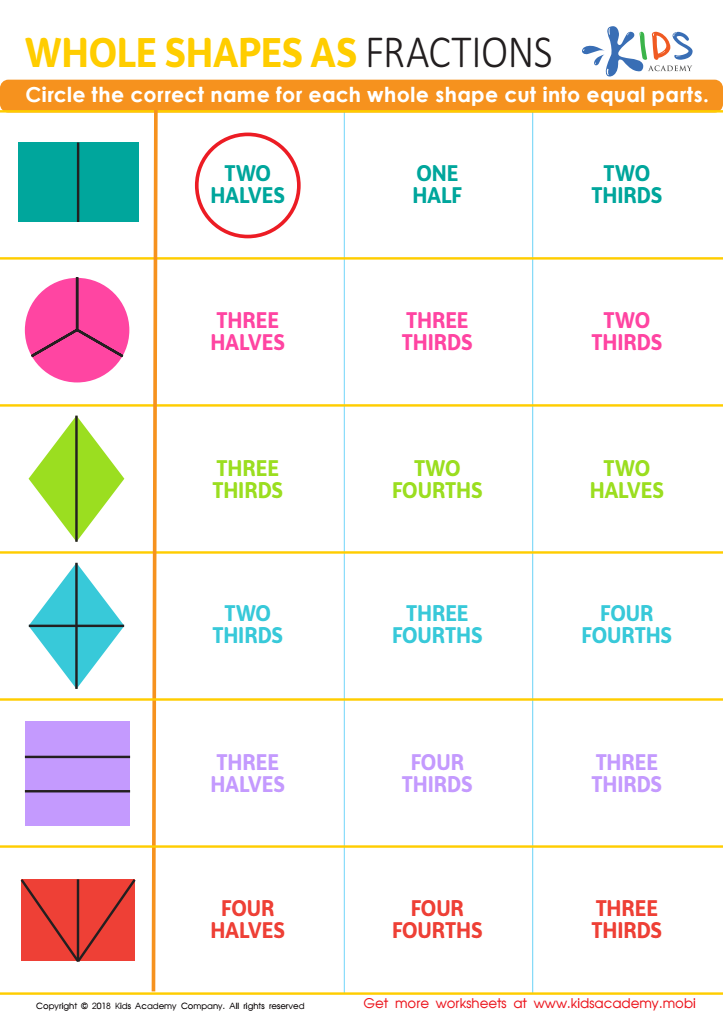

Whole Shapes as Fractions Worksheet
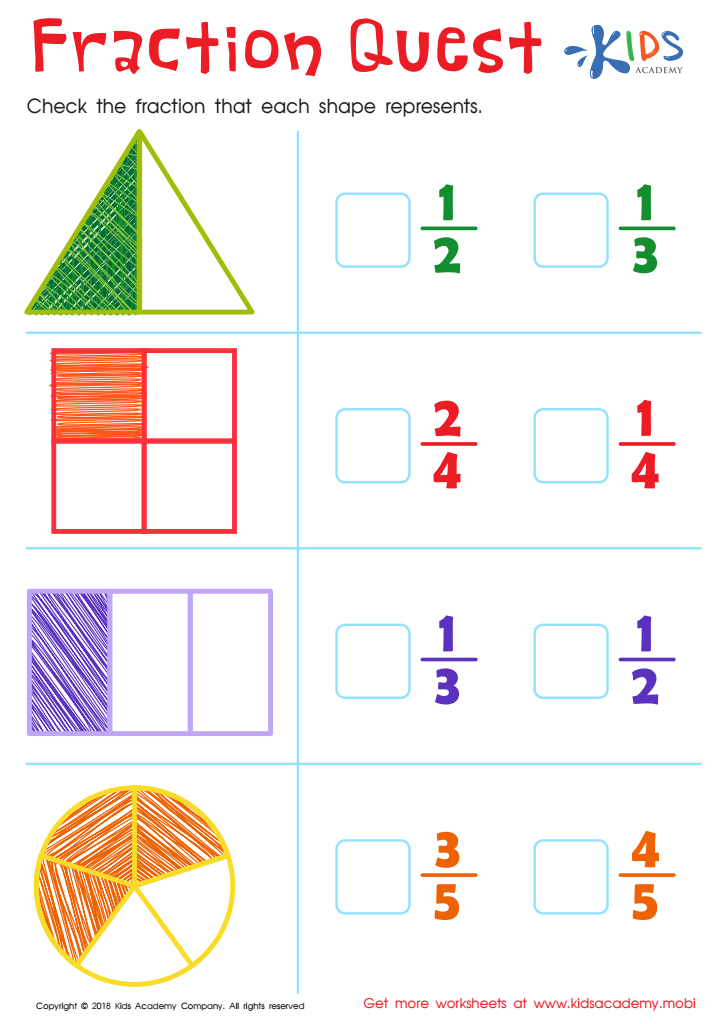

Fraction Quest Worksheet
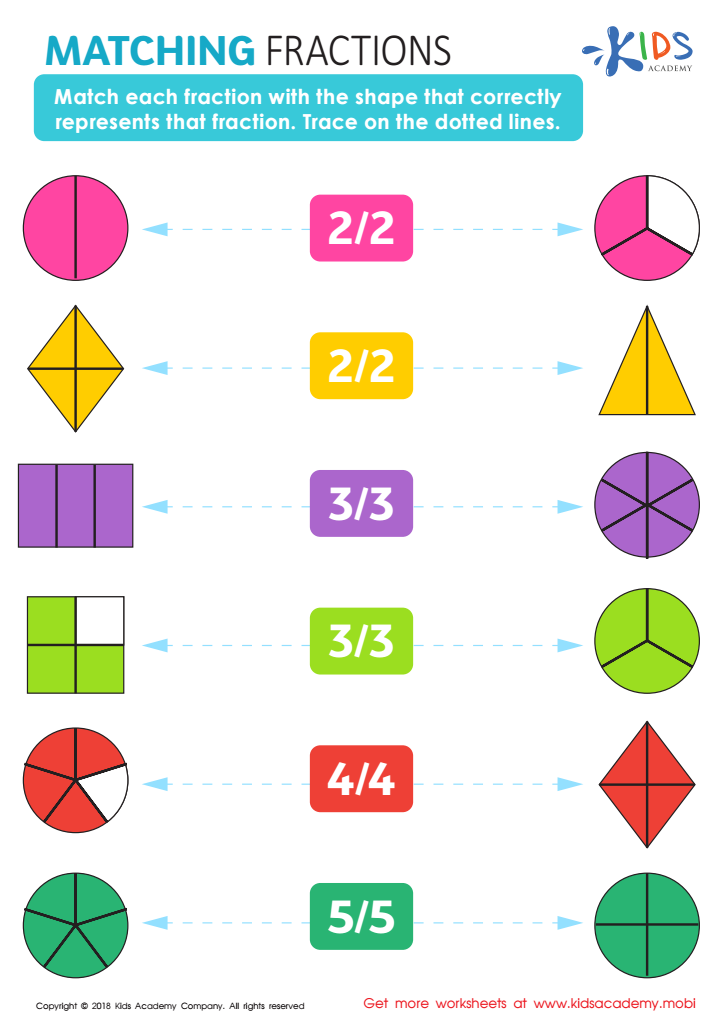

Matching Fractions Worksheet
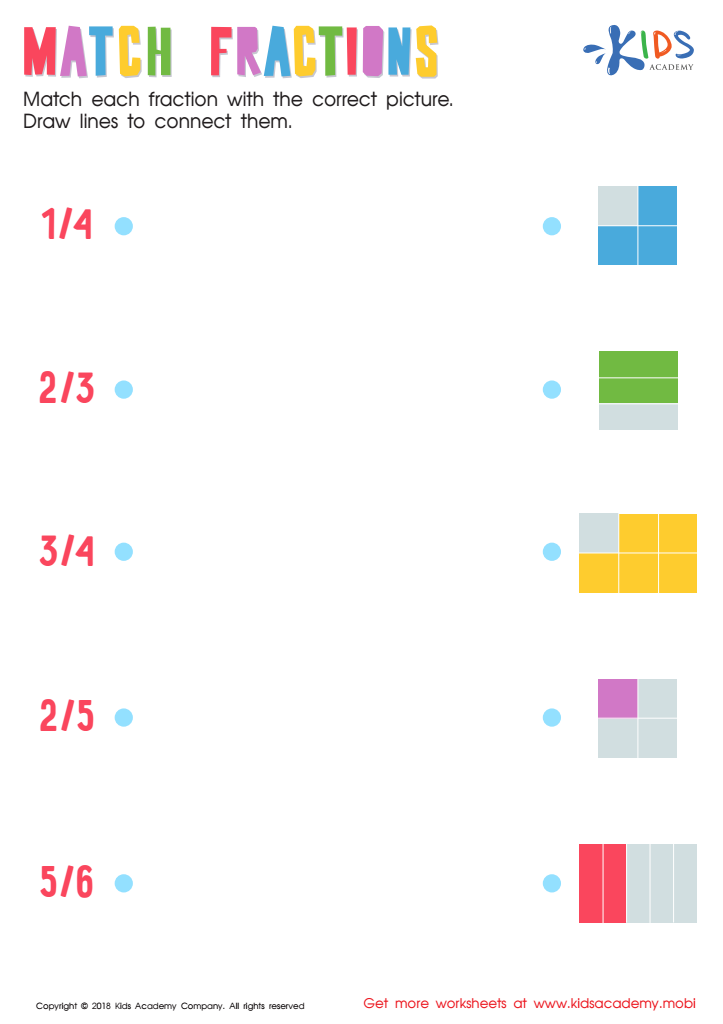

Match Fractions Worksheet
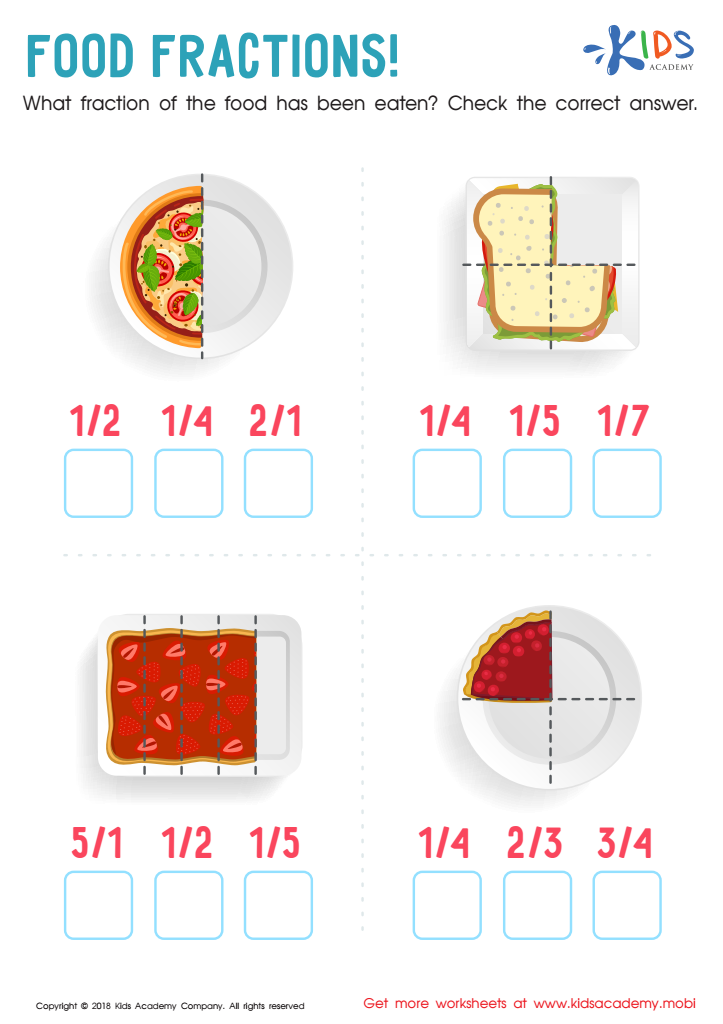

Food Fractions Worksheet
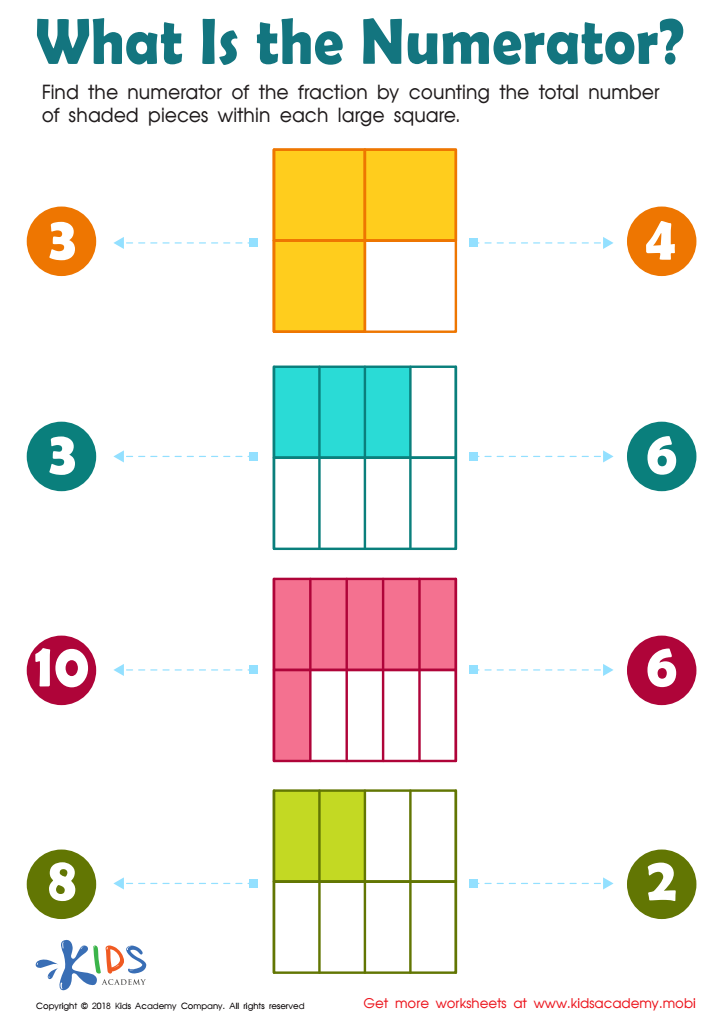

What Is the Numerator? Worksheet
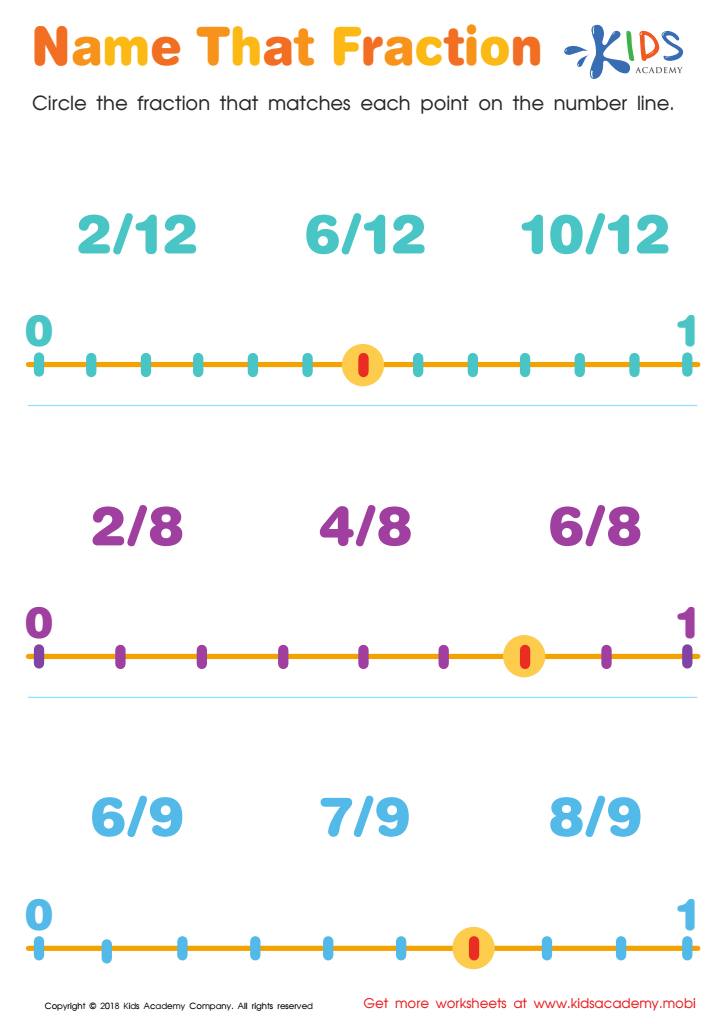

Name That Fraction Worksheet
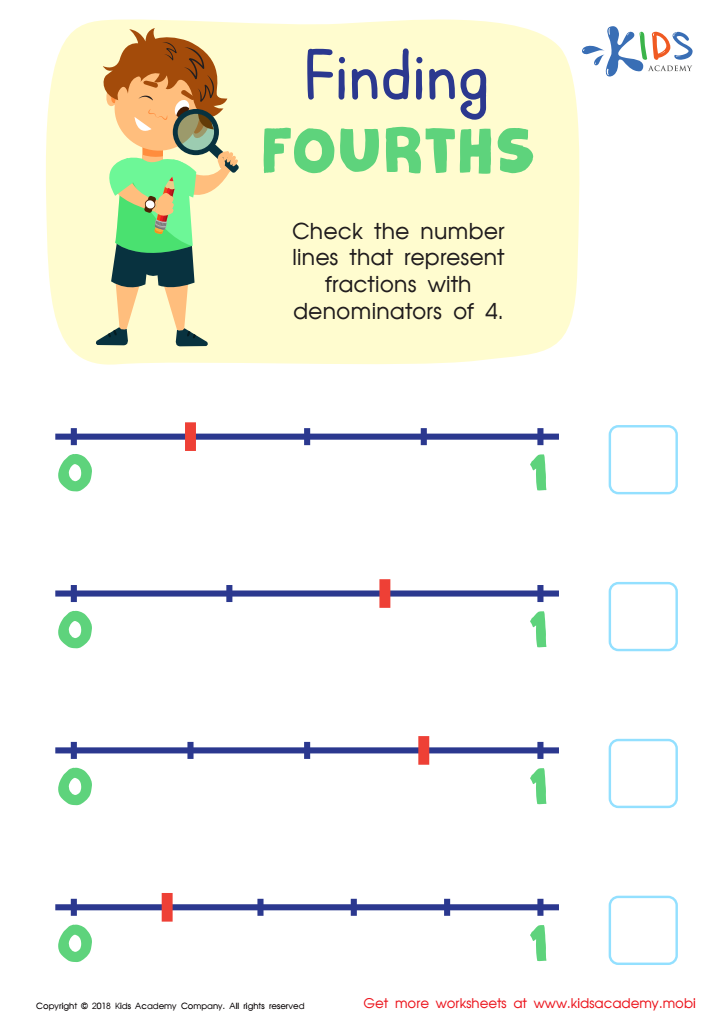

Finding Fourths Worksheet
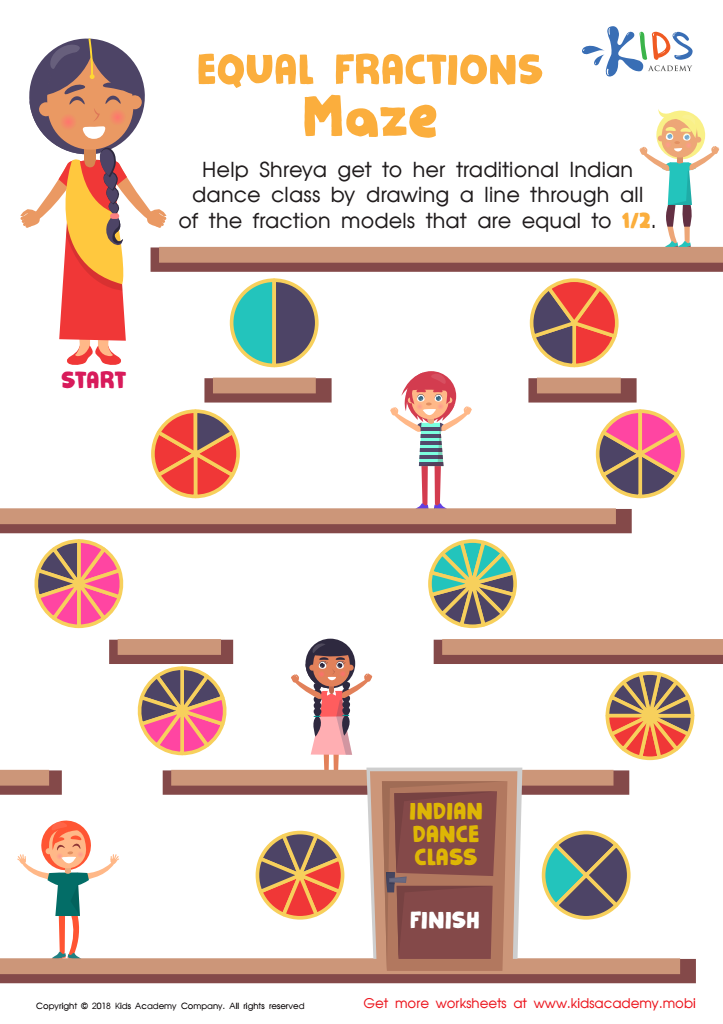

Equal Fractions Maze Worksheet
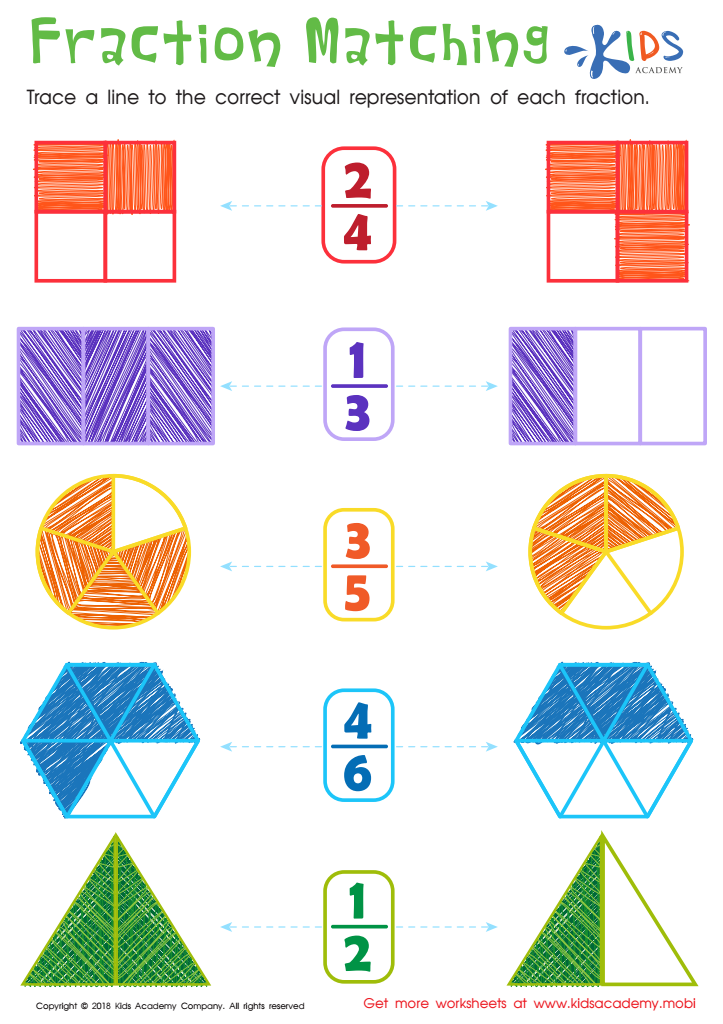

Fraction Matching Worksheet
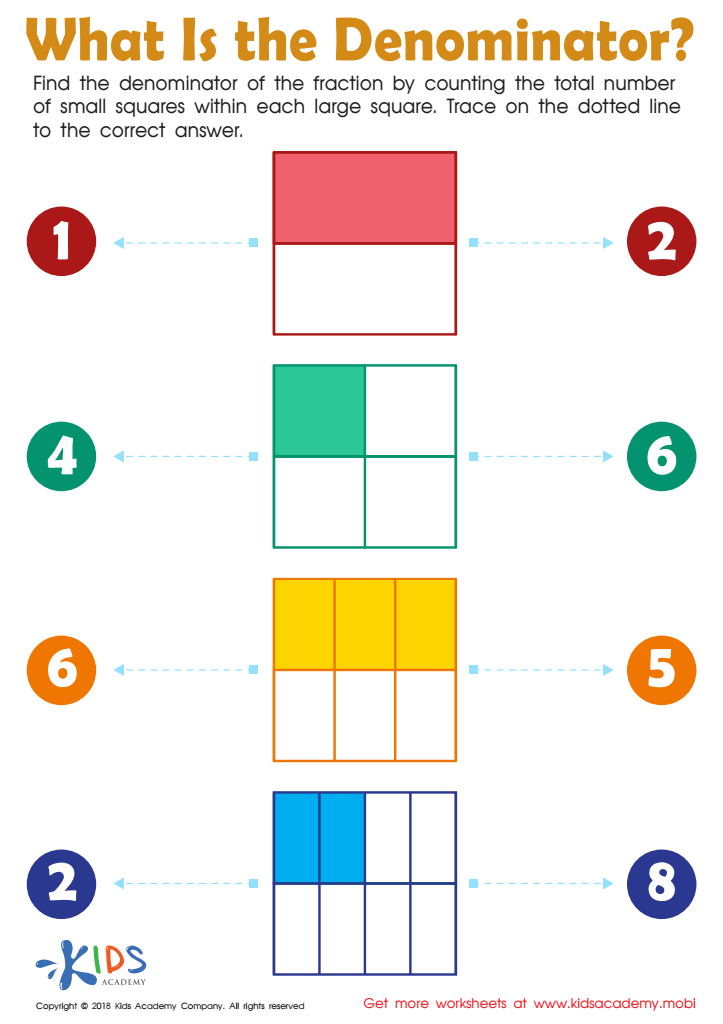

What Is the Denominator? Worksheet
Understanding fractions from an early age is crucial for children aged 5-8 because it lays the foundation for more complex mathematical concepts they will encounter later in their academic journey. For parents and teachers, prioritizing fractions at this stage ensures that children develop a strong number sense, enabling them to better grasp how numbers work together.
Fractions teach children about parts of a whole, which is essential for understanding measurements, dividing quantities, and real-life applications like cooking or sharing. When children comprehend fractions, they enhance their problem-solving skills and learn to approach mathematical challenges from different angles.
Moreover, many standardized tests and curricula emphasize fraction proficiency, making early competence advantageous for academic success. Early exposure also helps minimize math anxiety by familiarizing children with concepts gradually, preventing future learning gaps.
Parents and teachers should collaborate and use engaging, hands-on activities, such as slicing fruits or using fraction tiles, to make learning fractions enjoyable and relatable. This interactive approach not only strengthens their mathematical abilities but also fosters a positive attitude towards learning. Understanding fractions builds a robust mathematical foundation that supports children’s ongoing educational growth.
 Assign to My Students
Assign to My Students





















